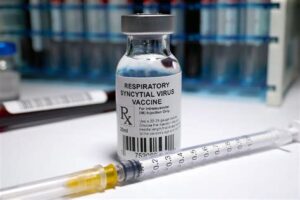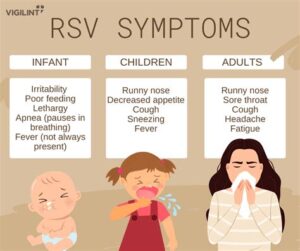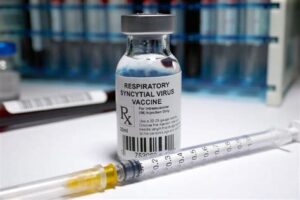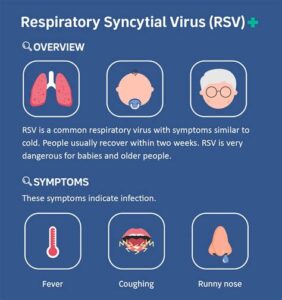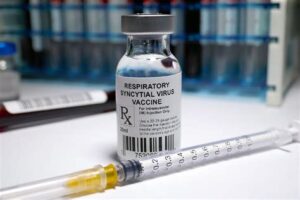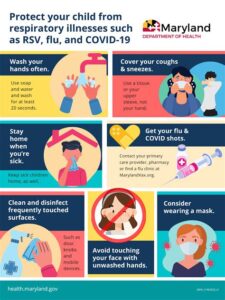Discover essential insights about the RSV vaccine, including expected symptoms, fatigue management, and its long-term benefits for your health.As the medical community continues to combat respiratory syncytial virus (RSV), the introduction of an RSV vaccine brings both hope and questions for many. With any vaccine, it’s common for individuals to experience side effects, and fatigue often tops the list of concerns. In this blog post, we’ll explore the essentials of the RSV vaccine, delving into what you can expect regarding tiredness and other post-vaccination symptoms. Understanding these effects is crucial for informed decision-making and managing your health post-injection. Additionally, we’ll discuss practical strategies to help you cope with any tiredness you might encounter, while also highlighting the long-term benefits that the RSV vaccine can provide. Join us as we navigate these important topics to ensure you’re well-informed and prepared.
RSV Vaccine: Understanding the Basics
Respiratory Syncytial Virus (RSV) is a significant cause of respiratory infections, particularly in infants and the elderly. Advances in medical science have led to the development of the RSV vaccine, which aims to reduce the incidence and severity of RSV infections. Understanding the basics of the RSV vaccine can help individuals make informed decisions regarding their health and the health of their loved ones.
The RSV vaccine is designed to stimulate the body’s immune system to recognize and combat the virus. It is essential for at-risk groups, such as premature infants and older adults with underlying health conditions, to receive the vaccine. Vaccination not only protects the individual but also contributes to herd immunity, thereby reducing the overall spread of the virus in the community.
When considering the RSV vaccine, it’s crucial to understand potential side effects. While most reactions are mild, including pain at the injection site and low-grade fever, some individuals may experience fatigue. This side effect, while temporary, typically resolves within a few days. If you notice unusual or persistent symptoms, consult your healthcare provider for guidance.
In summary, the RSV vaccine is a vital tool in preventing serious respiratory infections caused by RSV. By getting vaccinated, you are contributing to your own health and the well-being of those around you.
RSV Vaccine and Fatigue: What to Expect
The respiratory syncytial virus (RSV) vaccine is a new development aimed at reducing the incidence of RSV infections, particularly in young children and the elderly. As with most vaccines, some individuals may experience side effects, including fatigue. Understanding how this fatigue manifests and what to expect post-vaccination can help individuals prepare better for their recovery.
Generally, the fatigue experienced after receiving the RSV vaccine can vary in intensity from person to person. Some individuals report feeling a mild level of tiredness, while others may feel significantly more fatigued for a short period. This can be attributed to several factors including the body’s immune response to the vaccine and individual health conditions. In most cases, this fatigue is temporary and should subside within a few days after vaccination.
It’s important to manage your expectations regarding the RSV vaccine. Resting adequately, staying hydrated, and listening to your body are key to feeling better quicker. If you notice persistent or severe fatigue beyond a few days, it may be wise to consult with a healthcare provider.
| Symptom | Expected Duration | Advice |
|---|---|---|
| Fatigue | 1-3 days | Rest and hydrate |
| Soreness at injection site | 2-5 days | Apply a cool compress |
| Mild fever | 1-3 days | Stay hydrated and rest |
In summary, while fatigue is a common side effect of the RSV vaccine, understanding what to expect can help ease any worries regarding the experience. By prioritizing self-care during this time, individuals can better manage the effects of the vaccine and support their immune response effectively.
Symptoms After RSV Vaccine: Explained
After receiving the RSV vaccine, it is normal for individuals to experience a variety of symptoms as their body begins to build immunity against the respiratory syncytial virus (RSV). While many of these symptoms are generally mild and temporary, understanding them can help alleviate concerns and prepare you for any reactions that may occur following vaccination.
| Symptom | Duration | Notes |
|---|---|---|
| Fatigue | 1-3 days | A common response as the immune system works. |
| Injection Site Reaction | 1-2 days | Redness, swelling, or pain where the shot was given. |
| Mild Fever | 1-2 days | Indicates the body is responding to the vaccine. |
| Headache | 1-2 days | Can occur as part of the immune response. |
| Muscle Aches | 1-3 days | Similar to symptoms experienced during an infection. |
It is essential to stay hydrated and rest to help your body cope with these symptoms after receiving the vaccine. In most cases, the benefits of vaccination far outweigh any temporary discomfort caused by the RSV vaccine. If symptoms persist or worsen, i
Managing Tiredness After RSV Vaccine
The RSV vaccine is a crucial tool in preventing respiratory syncytial virus, especially in vulnerable populations like infants and the elderly. However, one common concern many people have after receiving the RSV vaccine is experiencing tiredness. It’s important to understand what contributes to this sensation and how to manage it effectively.
After receiving the RSV vaccine, your body begins to build immunity against the virus. This process can lead to a variety of side effects, and fatigue is one of the most frequently reported. This is a normal response as your immune system works hard to develop the necessary antibodies to fight off potential infections in the future.
- Rest: Allow yourself time to recuperate. Short naps throughout the day can be beneficial.
- Stay Hydrated: Drinking plenty of fluids helps your body function optimally.
- Nutrition: Eating balanced meals rich in vitamins and minerals can support your immune system and overall energy levels.
While feeling tired after the RSV vaccine can be uncomfortable, it’s typically brief and resolves as your body adjusts. Always consult with a healthcare provider if extensive tiredness persists or if you have additional concerns regarding your health following vaccination.
Long-Term Benefits of RSV Vaccine
The RSV vaccine has emerged as a crucial tool in combating respiratory syncytial virus (RSV), particularly in vulnerable populations such as infants and the elderly. While the immediate outcomes of vaccination, such as reduced symptoms and severity of infection, are evident, the long-term benefits of the RSV vaccine cannot be overlooked.
One of the most significant long-term benefits of the RSV vaccine is its ability to reduce the incidence of serious respiratory illnesses. Studies have shown that individuals who receive the vaccine are less likely to be hospitalized due to RSV-related complications. This not only aids in personal health but also decreases the burden on healthcare systems.
Moreover, the RSV vaccine contributes to community immunity, often referred to as herd immunity. When a substantial portion of the population is vaccinated, the overall transmission of RSV is reduced, thus protecting those who are more susceptible or cannot receive the vaccine due to medical reasons. This creates a safer environment for everyone, particularly vulnerable groups, fostering a healthier community.
In essence, the long-term benefits of the RSV vaccine extend beyond individual protection; they encompass broader public health advantages that echo through communities, paving the way towards a fut
Frequently Asked Questions
What is RSV and why is it significant?
RSV, or respiratory syncytial virus, is a common virus that causes respiratory infections, especially in young children and older adults. It is significant because it can lead to severe illness and hospitalizations in vulnerable populations.
How does the RSV vaccine work?
The RSV vaccine works by stimulating the immune system to produce antibodies against the virus. This helps prevent infection and reduces the severity of symptoms if one does get infected.
What are common side effects of the RSV vaccine?
Common side effects of the RSV vaccine can include soreness at the injection site, mild fever, and fatigue. Most side effects are mild and resolve on their own shortly after vaccination.
Does the RSV vaccine specifically cause fatigue?
While fatigue can be a side effect of the RSV vaccine, it is generally mild and temporary. Not everyone will experience fatigue, and the benefits of vaccination usually outweigh the side effects.
How long do side effects from the RSV vaccine last?
Side effects from the RSV vaccine typically last one to three days. If fatigue or other symptoms persist beyond this timeframe, it is advisable to consult a healthcare professional.
Who should consider getting the RSV vaccine?
The RSV vaccine is recommended for infants, young children, older adults, and individuals with compromised immune systems or chronic respiratory conditions, as they are at higher risk for severe RSV infections.
Are there any contraindications for the RSV vaccine?
Contraindications may include a history of severe allergic reactions to components of the vaccine. It is important to discuss any medical history with a healthcare provider before vaccination.
